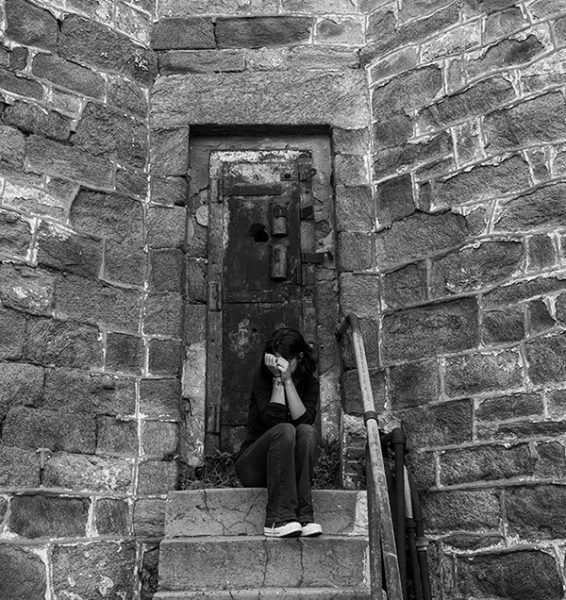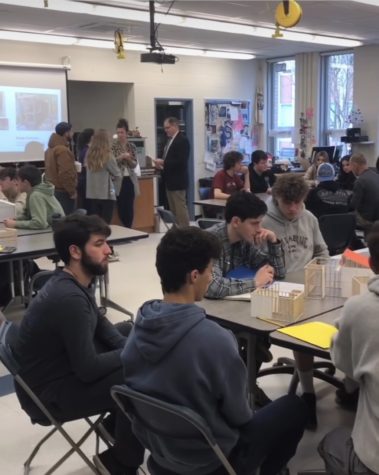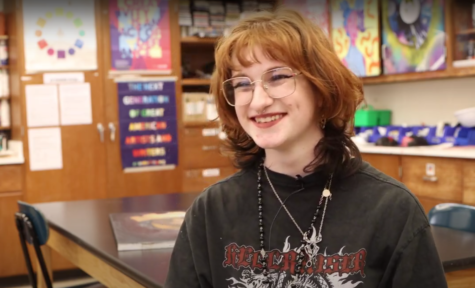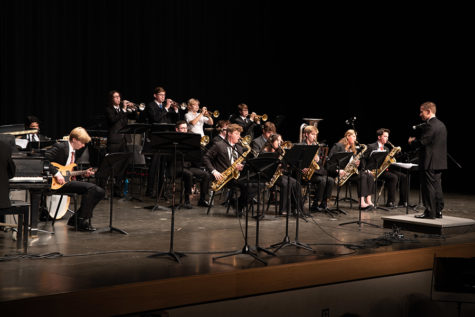Do Politics Belong in Schools?
The breaching of the Capitol building brought a new discussion with it; what role do politics have in schools?
January 8, 2021
Editorial by Leah Lentz and does not reflect the neutral opinions of the Lenape Regional High School District.
Editorials with opposing opinions are welcome.
_________________________
I am going to begin this article with a few objective statements.
On Wednesday, January 6, at 2:24 P.M., President Donald Trump incited violence at the Capitol Building during the electoral process through a tweet that implied Vice President Mike Pence was not doing enough to defend his honor; this was in direct response to a letter VP Mike Pence wrote and tweeted stating that it was and is illegal for the Vice President to object to the proceedings.
Upon reading this tweet, a crowd of the President’s supporters stormed the Capitol Building and forced the entirety of Congress to seek refuge in other locations. At 3:49, we received word that the National Guard had been dispatched. At 4:08, President-Elect Joe Biden spoke out, demanding that President Trump state that the election has been lost and that this terrorism must come to an end. At 4:21, President Trump responded in a minute-long Twitter video stating that a) the election was fraudulent and stolen, b) he was on the side of the insurrectionists, and c) in a direct quote to his supporters, “I love you, you’re special.”
At 4:38 P.M., Representative Ilhan Omar tweeted that she had begun gathering articles of impeachment. At 4:46, D.C. Mayor Muriel Bowser called for law and order, deployed local police, reiterated her mutual aid agreement with neighboring cities and states, and reminded the insurrectionists of her 6 P.M. curfew, enacted at the start of the protests.
These are the facts of the situation that occurred on Wednesday. I got texts on the Remind from my history teacher saying “Please turn on your TV if you are home. Any channel…It is shocking.” She later followed these up with “I didn’t think I would ever see the day when Americans took down the US flag on the Capitol building.” In a group chat, my friends sent screenshots of texts they were seeing on local Facebook pages or Tiktoks of that terrifying man with the wide eyes (Marcus DiPaola, scares the soul out of me).
The attempted coup on the Capitol building has brought back a difficult conversation we haven’t had since November; do politics belong in schools? To what degree?
There is a lot to be said about the value of politics within our education system. When we take the time to discuss tragic events in class, we run the risk of alienating certain students, but we also open up to meaningful conversations about race, gender, and privilege, and regardless of how those conversations go, they are important to the growth of young people’s minds and hearts.
That being said, politics are exhausting. In our current, increasingly polarized American society, classroom discussions on political happenings can breed more disruption and hatred between peers. It can be hard to regulate these conversations while remaining unbiased, and when regulating these conversations, students can feel like their teachers are biased against them. Still, teachers have a responsibility to prepare students for the real world, and in the real world, discussions about politics, race, gender, privilege, etc. are commonplace.
In 2015 in an article with NPR, Professor Paula McAvoy stated that “young people are learning to deliberate about political questions. It really is the process of deliberation that is the major skill being taught.” Her book, The Political Classroom, argues that political discussions within the classroom teach the democratic process and the ability to form and defend an argument. Thus, by avoiding such conversations, we deprive ourselves of valuable life skills and experiences.
Furthermore, it would be absolutely naive to say that political proceedings do not directly affect the students being taught, and people that say otherwise ignore basic facts and law. In the year 2022, every Junior and Senior will be able to vote, by 2024, the entire student population. Legislation relating to students is passed every day, be it in terms of gun violence, education, taxes, violence against women, etc. Is it not important to discuss these changes that impact the student body? Why shouldn’t we talk about it?
Political discussions in the classroom can lead to various harmful responses as well. When students’ identities are put up for debate, they can feel invalidated and hurt by the words of their peers. People from immigrant backgrounds may feel targeted by their classmates discussing whether they have a right to be in the country or not; similarly, students of color (especially in a school with such a large white population as Shawnee) may feel hurt by their classmates’ statements on victims of police brutality such as Breonna Taylor or Elijah McClain.
Political conversations can also alienate students that aren’t of the same allegiance as the majority and can lead to disrespect between the two groups if the ratio of conservative to liberal is a close one. It’s difficult to make sure that everyone feels seen in these arguments, especially when many students just don’t care.
Still, sometimes an event such as this one occurs, and there is no choice but to talk about it. Many would argue that it’s a teacher’s responsibility to guide their students towards being good people, and the events that occurred on Wednesday were nothing short of disrespectful to the government, the democratic process, and the people of this country that have relied upon the constitution for centuries. Bringing the confederate flag within the walls of the Capitol building is a disgrace towards those who died in slavery and in the civil war, as well as all of those who were and are victims of the systemic racism created by these events. Shirts reading “6 Million Wasn’t Enough” and “Camp Auschwitz” within the very building where we entered into World War 2 is entirely disrespectful to the victims of the Holocaust and the veterans of the war that these insurrectionists claim to love. To take down the American flag and replace it with the flag of a political figure is immoral and reprehensible behavior, especially in protest of a completely legal and democratic election.
So why can’t we talk about that? Why is there even a debate about this? In the past year alone, we have seen more potential DBQ questions in the headlines than any other generation. Media has become incredibly accessible, and political theory and concepts have become readily available for a generation looking for answers. This polarization, we have to come to realize, is unavoidable. The best thing we can do is normalize it, and teach our children how to have respectful conversations with their fellow man.








Michele • Feb 22, 2021 at 3:59 pm
I really enjoyed reading your article and the critical thinking you implemented to make your case. I agree with you that students in high school today are impacted by politics and their up and coming votes have the opportunity to shape the future of the nation.
I do think it is a tricky topic for teachers to address as they have an obligation to not bring their own political beliefs into the classroom. They need to be able to facilitate discussion that teaches critical thinking without teaching what to think and not allow discussions to alienate or target individual students. It is certainly worthwhile to do so.
Thank you for the well thought out reading on this topic!